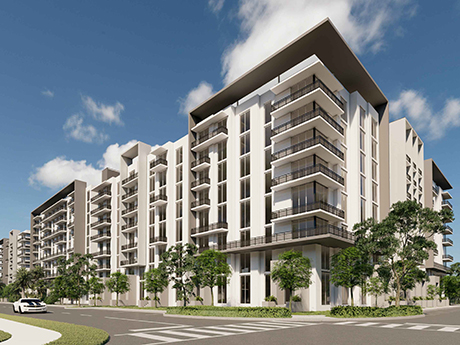4 Trends That Will Shape Florida Real Estate in 2024 – Commercial Observer
As commercial real estate markets across the U.S. cope with rising costs and slowing demand, Florida has been a rare bright spot. The Sunshine State has welcomed a record number of people and businesses in recent years, and that activity is driving strength and stability across asset classes.
Florida is home to six of the country’s top 20 most competitive multifamily markets, its tourism sector set a new visitation record in 2022, and office market dynamics from Miami to Tampa are outperforming national averages.
As 2024 approaches, the burning question is whether Florida’s commercial real estate landscape will remain resilient. Bilzin Sumberg, which has one of the largest and most active real estate practices in the state, is tracking the following trends heading into the new year.
1.Lenders will become even more selective
Developers have been grappling with escalating costs on multiple fronts throughout 2023, and this is unlikely to ease as interest rates, inflation, wage growth and insurance costs mount and lenders have been grappling with valuations and pricing. As a result, capital for commercial real estate investments will be increasingly hard to come by, as lenders will be more selective about the deals they choose to finance. The more expenses and interest rates rise while uncertainty prevails, the more difficult it will be to complete deals in 2024. Developers will become even more strategic about the projects they pursue, and more proactive in getting ahead of potential challenges.
The good news for South Florida is that developers are still building, according to Bilzin Sumberg’s real estate practice chair Suzanne Amaducci. The demand for the South Florida lifestyle remains strong from both domestic and international buyers. Condo construction projects financed in part with upfront buyer deposits have obtained financing and are now underway with more projects to start in the near future, Amaducci reports.
“Our team is on track to close at least four condominium construction loans with a combined value of more than $600 million before the end of the year,” Amaducci said.
2. The Live Local Act will spur development in metro areas
Against the backdrop of a housing affordability crunch and tight financing environment, one Florida law enacted in 2023 is becoming an important vehicle for developers and investors looking to get shovels in the dirt.
The Live Local Act is a statewide housing strategy designed to create affordable and attainable housing opportunities, allowing more of Florida’s workforce to live in the communities they serve. The act offers funding and tax credits, and mandates that local governments administratively authorize multifamily development on certain sites if at least 40% of units will be affordable for people making up to 120% of the local area median income.
The Live Local Act could become a blueprint for other states to follow as cities across the U.S. contend with an affordability crisis.
“This is Florida’s most significant land use policy change in 20 years to address the biggest problem we have had in 100+ years,” said Bilzin Sumberg partner Anthony De Yurre, who is advising on more than 40 projects advancing under the law. “The Live Local Act is crucial for teachers, government employees and other pillars of Florida’s economy, many of whom have been priced out of the best employment centers, resulting in long-distance commutes. It’s also a game changer for developers. In many cases, this law will be the difference between a project getting done or shelved.”
3. Condo redevelopment deals will grow in popularity
Florida is home to 1.5 million condo units, and 925,000 of those are more than 30 years old, according to Bilzin Sumberg real estate partner Joe Hernandez. Nearly 50% of those units are in Miami-Dade and Broward, making South Florida fertile ground for condo terminations that pave the way for redevelopment.
As Florida’s population grows, aging condo buildings emerge as prime targets for buyouts that pave the way for redevelopment. The impetus behind this trend is twofold: the imperative for costly repairs mandated by state regulations enacted in 2022, and escalating construction and insurance costs.
Condo associations at aging properties are dealing with the worst of all worlds, as expensive repairs required under state regulations passed after the collapse of South Florida condominium Champlain Towers in 2021 are colliding with mounting costs. Compounding the problem is Florida’s insurance crisis, which is resulting in fast-rising premiums, decreased coverage amounts, and some insurers becoming insolvent or exiting the state altogether.
“The confluence of factors in Florida creates fertile ground for developers seeking to breathe new life into aging condominiums – and with a surge in population, the demand for housing is more pronounced than ever,” said Bilzin Sumberg’s Joe Hernandez. “Condo terminations represent a strategic move in response to higher maintenance costs, rising insurance premiums and tightening regulations.”
Florida is likely to see even more of these deals in 2024 as condos struggle with higher maintenance and insurance costs, and tighter regulations.
4. Initial signs of distress will emerge
For all of Florida’s strengths, there is no escaping the fact that almost $1.5 trillion in commercial real estate debt comes due by the end of 2025. For the time being, distressed properties are hard to come by in Florida, but that may change as pressure mounts on owners whose assets currently benefit from low financing costs.
“The CMBS market is cyclical, and many property owners took advantage of the prolonged period of low capital costs that ended in 2022,” said Karyl Argamasilla, co-head of Bilzin Sumberg’s CMBS and real estate capital markets practice. “We anticipate a wave of loan maturities in 2024 and 2025. In some instances, these loans will not be able to be refinanced or paid off, which could trigger an uptick in workouts.”
Bilzin Sumberg is on the front lines in identifying development and investment opportunities, securing entitlements and financing, negotiating and documenting workouts, counseling developers and investors in transactions, and navigating construction-related matters. Stay informed with the latest insights on the Florida market by subscribing to the firm’s real estate blogs.



